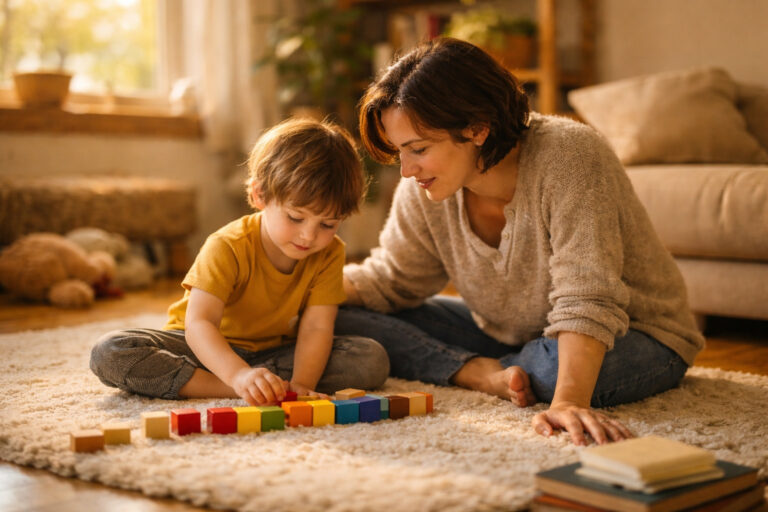
10 Strategies for Projecting Positive Energy onto Your Kids
As parents, the energy we radiate profoundly influences the emotional and psychological well-being of our children. A home filled with positive energy fosters resilience, optimism, and kindness, helping kids thrive in every aspect of their lives. But projecting positive energy goes beyond simply being cheerful—it’s about cultivating an uplifting environment where children feel seen, supported, and nurtured. Let’s explore 10 effective strategies to infuse positivity into your home and your children’s hearts.
1. Start Your Day with a Positive Mindset
The way you begin your day sets the tone for the entire household. A calm and optimistic morning routine can significantly impact the atmosphere of your home. Begin each day by practicing gratitude, meditating, or affirming positive thoughts.
When you radiate peace and confidence, your children are more likely to mirror these traits. For instance, simply greeting them with a warm smile and a cheerful “Good Morning!” creates an energetic foundation of positivity they can lean on throughout the day.
Key Tip: Avoid chaotic mornings by preparing the night before. A smooth, organized start helps everyone feel more at ease.
2. Model Positive Behavior
Children learn by observing their parents, making it essential to model behavior that aligns with the values you want them to adopt. This includes how you handle stress, conflicts, and setbacks.
For example, when faced with a challenge, demonstrate resilience by focusing on solutions rather than problems. Use kindness and patience in your words, even during disagreements, as this teaches your children the power of compassion and effective communication.
Remember: Kids are always watching! Your actions often have a more significant impact than words.
3. Create a Calm and Joyful Home Environment
The energy in a household reflects its physical and emotional environment. A cluttered, chaotic home can often contribute to stress and negativity. Dedicate time to keeping your living space clean, organized, and inviting.
Add elements that inspire joy and calmness—such as colorful artwork, soft lighting, and cozy nooks for relaxation. Playing uplifting music in the background or burning a scented candle can also enhance the positive vibes in your home.
Key Takeaway: Your home should feel like a sanctuary for your children, where safety, love, and warmth always prevail.
4. Encourage Open Communication
Creating a safe space for your children to share their thoughts and feelings without judgment is vital. When children feel heard and understood, they are more likely to develop confidence and emotional resilience.
Ask open-ended questions to encourage discussions, and listen actively to their responses. Maintain eye contact, acknowledge their emotions, and show empathy. Remember, positive energy stems from fostering strong emotional bonds.
Parent Tip: Practice active listening by reflecting back what you hear to ensure your kids feel fully understood.
5. Practice Kindness in Daily Interactions
Kindness is contagious. When you consistently show kindness and generosity to others—whether it’s a neighbor, a stranger, or a family member—you set a powerful example for your children.
Encourage your kids to engage in small acts of kindness, such as writing thank-you notes or helping someone in need. When they see positive energy spreading through their actions, they’ll naturally adopt a more compassionate worldview.
6. Celebrate Achievements, Big and Small
Recognizing and celebrating your children’s efforts and accomplishments can boost their self-esteem and cultivate a positive outlook. Celebrate even the small wins—a homework assignment done on time, a thoughtful gesture, or trying something new.
Focus on praising their effort rather than outcomes to instill a growth mindset. Try saying, “I’m proud of how hard you worked!” instead of “Good job on winning!” to encourage resilience.
Key Tip: Create family traditions to celebrate moments together, such as a “highlights” dinner where everyone shares their proudest moment of the day.
7. Establish Family Routines with Fun and Connection
Routines provide a sense of stability and security, both crucial for a child’s mental well-being. Incorporate fun traditions into family routines, like movie nights, board games, or cooking meals together.
Bonding activities not only strengthen emotional connections but also foster positive associations with family time. These rituals become cherished memories your children carry for life.
8. Encourage Optimism and Problem-Solving
Help your kids develop an optimistic mindset by teaching them to reframe challenges as opportunities. If they face setbacks, guide them in identifying lessons learned and positive takeaways.
For example, if they fail a test, encourage them by saying, “What can we do differently next time?” rather than criticizing. This approach helps strengthen their problem-solving skills while emphasizing the value of perseverance.
Parent Insight: Optimism is a learned skill—model it consistently, and your children will follow suit.
9. Limit Negativity from External Sources
The content your children consume—whether on TV, social media, or through friendships—can influence their energy levels. Monitor their media exposure and encourage sources of upliftment over negativity.
Introduce books, shows, or activities that inspire hope, curiosity, and kindness. Also, teach them to set boundaries with toxic relationships, fostering a healthier social environment.
Actionable Tip: Spend time together consuming positive media like motivational podcasts or family-friendly movies.
10. Take Care of Yourself
Finally, remember that your ability to project positive energy to your children starts with taking care of your own emotional and physical well-being. Practice self-care regularly through exercise, hobbies, mindfulness, or relaxation techniques.
When you’re mentally balanced, you’re better equipped to nurture your children’s happiness and growth. And don’t be afraid to ask for help when you need it—seeking support is a strength!
Key Takeaway: A happy parent is the foundation of a happy home. Prioritize your well-being as much as you prioritize theirs.
Key Takeaways
- Begin each day with gratitude and positivity to set the tone for your family.
- Model kindness, optimism, and resilience in everyday behavior.
- Create a calm, joyful home environment that nurtures emotional safety.
- Celebrate achievements to boost confidence and promote a growth mindset.
- Practice self-care regularly to maintain your capacity to project positive energy.
FAQs
Q: How can I help my child develop a positive outlook?
A: Encourage them to focus on solutions rather than problems, celebrate their efforts, and model optimism in your daily interactions.
Q: What if I’m feeling stressed and struggle to project positive energy?
A: Take time to prioritize self-care, such as mindfulness practices or asking for support. A balanced parent is better equipped to inspire positivity.
Q: How does positivity at home influence emotional growth?
A: A positive environment fosters emotional resilience, strength, and optimism in kids, helping them thrive in all areas of life.
By implementing these 10 strategies, you can create a harmonious, uplifting space for your children to grow emotionally, mentally, and socially. With consistent effort, you’ll raise resilient, kind, and optimistic individuals who radiate positivity into the world!




